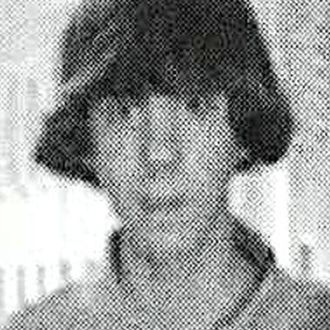
After the mother of a 6-year-old girl killed at Sandy Hook met with shooter Adam Lanza’s father a year ago, she explained, according to CBS’s Norah O’Donnell, that she “believes that Peter Lanza holds the keys to this whole thing.” Other than the fact that he divorced Adam’s mother in 2009 and hadn’t seen his son in the two years before the massacre, Peter Lanza has remained a mystery, until now. The latest issue of the New Yorker includes a profile of Peter Lanza, who was interviewed by writer Andrew Solomon. Lanza said he’s constantly thinking about what he could have done differently as a parent, and “Any variation on what I did and how my relationship was had to be good, because no outcome could be worse.” But he doesn’t think he could have predicted the tragedy. “You can’t get any more evil,” he said of Adam, adding, “How much do I beat up on myself about the fact that he’s my son? A lot.”
While Peter Lanza has been portrayed in the media as a father who abandoned his child, by his account he was an involved parent who repeatedly tried to connect with his troubled son. The two were close when Adam was in elementary school, and his father describes him as “Just a normal little weird kid.” Peter and Nancy separated when Adam was 9, but he continued to see his two sons every weekend. Peter and Adam went on hiking trips together, watched old sitcoms, and talked about politics. As he grew older, Adam became interested in guns, World War II, and the military, but he was never violent and said nothing about mass murder.
Adam’s problems became more pronounced when he entered middle school. “It was crystal clear something was wrong,” Peter said. “The social awkwardness, the uncomfortable anxiety, unable to sleep, stress, unable to concentrate, having a hard time learning, the awkward walk, reduced eye contact. You could see the changes occurring.” Adam was diagnosed with Asperger syndrome at 13, but Peter gets annoyed when people suggest that caused the massacre. “Asperger’s makes people unusual, but it doesn’t make people like this,” he said, adding that he thinks the diagnosis might have prevented them from recognizing another condition, such as schizophrenia.
Nancy and Peter regularly communicated about Adam’s worsening condition, but Peter says, “I didn’t understand that Adam was drifting away.” In 2010, Adam refused to see his father or communicate with him, but Peter continued trying to set up visits. “I was hurt. I never expected that I would never talk to him again. I thought it was a matter of when,” he said.
Peter believes that by the end, Adam had no affection for any of his family members. “With hindsight, I know Adam would have killed me in a heartbeat, if he’d had the chance. I don’t question that for a minute,” he said. “The reason he shot Nancy four times was one for each of us: one for Nancy; one for him; one for Ryan; one for me.”
While the story sheds light on Adam Lanza’s upbringing, it only underscores that we’ll never know why he did it – and as Solomon puts it, “no ‘motive’ can mitigate the horror of a bloodbath involving children.” Now we can point out what Adam’s parents should have done differently, but Peter’s most chilling revelation is that both he and his ex-wife loved their son and were trying to do what was best for him. “I want people to be afraid of the fact that this could happen to them,” Peter said.






























